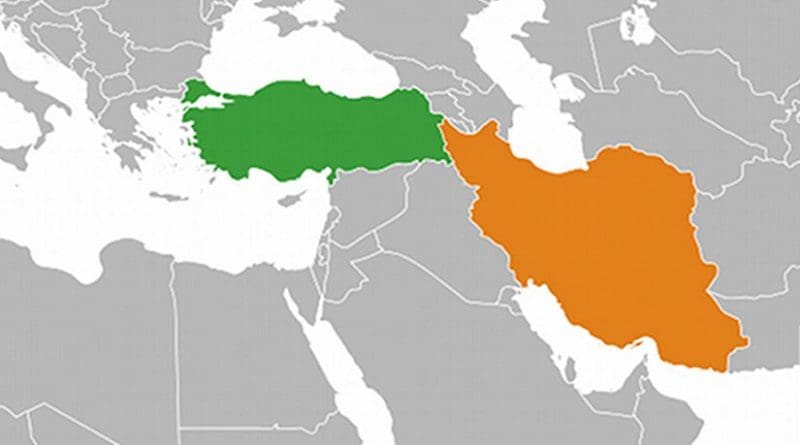Turkey Key Player In Any Sanctions Against Iran
By RFE RL
By Dorian Jones for RFE/RL
Any effort to impose effective sanctions on Iran in the wake of the report by the International Atomic Energy Agency (IAEA) will require Turkey’s cooperation.
But analysts say given Ankara’s expanding trade ties with Tehran, such cooperation is highly unlikely.
The IAEA’s latest report on Iran says there is a credible risk that the country could develop nuclear weapons, despite persistent denials from the authorities in Tehran, and pressure is growing for a new wave of tough economic sanctions.
And while Iran’s nuclear program was one of the items on the agenda for French Foreign Minister Alain Juppe’s two-day visit to Turkey, analysts say they expect little progress.
Along with China, Turkey is one of the two “key players” needed in order to impose effective sanctions, notes Merhad Emadi, an Iran specialist at the London-based consultancy firm Beta Matrix. “But regionally, we cannot overestimate the role Turkey can play in making sanctions more effective, more transparent, and preventing sanction-busting behavior by Turkish businesses and Turkish middlemen and Iranian business agents.
Pressure On Turkey To Participate In Sanctions
Until now, Ankara has steadfastly refused to enforce European Union or U.S. measures against Iran, saying it is only bound by United Nations sanctions.
Observers say Washington and Brussels have been relatively successful in pressuring countries like the United Arab Emirates into enforcing sanctions against Iran. But Turkey, on the other hand, has actually expanded its trade with Tehran.
Ankara is in a difficult position due to its dependence on Iranian energy, says Soli Ozel, an international-affairs specialist at Kadir Has University in Istanbul, including for 20 percent of its natural-gas needs. “And it needs Iran in order to get its trucks through to Central Asia,” he adds.
But Turkey will be “hard-pressed to resist” Western pressure to “participate in the sanctions regime,” Ozel says. He also notes that relations between Turkey and Iran are “deteriorating as we speak,” due to disagreements over Syria.
Bilateral relations between Turkey and Iran have indeed cooled over Ankara’s strong support for the Syrian opposition, despite repeated warnings from Tehran, which considers Syrian President Bashar al-Assad a key ally.
Turkish Prime Minister Recep Tayyip Erdogan has persistently claimed that sanctions are ineffective and only hurt ordinary citizens. But he is nevertheless expected to announce economic sanctions against Syria in the coming days.
Turkey Has ‘Own Approach’ To Iran
But while Ankara’s stance on Syria has pleased Washington and Brussels, observers say this will not necessarily translate into a meeting of the minds on Iran.
“I think Iran is a different case and a different issue, where Turkey might have a more nuanced view on how to deal with it,” says Suat Kiniklioglu is the deputy head of the ruling Justice and Development Party’s External Affairs Committee and the former chairman of the Turkish parliament’s Foreign Affairs Committee.
In the end, Turkey will probably be reluctant to oppose the Western allies on Iran, adds Murat Bilhan, an international-relations specialist at Istanbul’s Kultur University and former chairman of the Turkish Foreign Ministry’s Department on Strategic Thinking. But much depends upon how the issue is approached.
Bilhan believes that Ankara “should be consulted at each level. The problem in the past has been that Turkey has been taken for granted. So [now] they want to follow an independent line, which will end up [with] Turkey as a regional power that should be respected.
“The Iranian policy is part of that policy. In that sense Iran [could be] considered as a [potential] threat [to Turkey]. [It could be] a rival in Central Asia, in the Middle East, in the Persian Gulf, in Syria, in all the region.”

